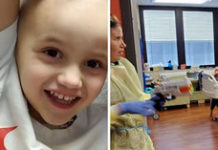Roughly three in ten uninsured Americans say they’ve gone without needed healthcare in the past year. While that may not be surprising, can issues like this face people with insurance, as well? A new study says they might.
Researchers from The Ohio State University interviewed 50 women at high risk of developing breast cancer and found that even those who were insured faced financial barriers to care. The findings were published in the Journal of Genetic Counseling.

Tasleem Padamsee, co-lead author and assistant professor of health services management and policy at Ohio State, says, “Financial barriers seem to regularly impede access to critical information that high-risk women can only get through genetic counseling and testing, and keep them from using regular screenings that could catch cancers in the earliest and most treatable stages.”
She added that cost barriers can also make it very difficult to access preventative measures and medications.
Researchers say that regardless of income level or coverage, the participants reported worries about the financial fallout of preventative measures. They often said they avoided doing things they didn’t think they could afford. However, this didn’t just include the cost of the actual procedures. Existing medical debt, bills to treat other illnesses in themselves or the family, and child care were also involved in the decision.
Another problem that was often reported was the lack of price transparency from insurance companies, leading women to guess what is covered and what isn’t.

There was another insurance-related barrier, as well.
Rachel Meadows, co-lead author who worked on the research as a doctoral student at Ohio State’s College of Public Health, explains, “Underinsurance was a really big factor – even for those women who have private insurance, they come across a lot of hurdles with requesting coverage for genetic testing, counseling, risk-reducing surgeries and enhanced breast screening.”
Meadows adds that many women were also concerned that they could face future discrimination if they have genetic testing, despite current laws prohibiting genetic discrimination.
Article continues below
Our Featured Programs
See how we’re making a difference for People, Pets, and the Planet and how you can get involved!
Padamsee says their findings show that high-risk patients may need providers who are prepared to share information on costs, coverage, and financial assistance programs. The study also sheds light on the need for insurance companies to be more transparent on full benefits and co-pays in ways people can understand.
Padamsee feels these important steps could lead to better outcomes for high-risk women, explaining, “These changes could improve women’s ability to access high-risk care, reduce the number and severity of future cancers, and avoid future cancer treatment costs for both patients and payers.”

The cost of care even with insurance isn’t just an issue to this group of women. According to KFF, about a third of insured Americans say it is difficult to afford their deductibles.
![]()
Provide Mammograms
Support those fighting Breast Cancer at The Breast Cancer Site for free! →
Whizzco Source








